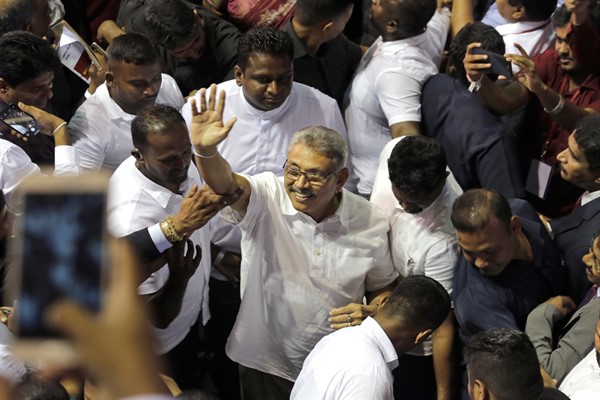Populist politicians, who have been sweeping to power in countries across the globe, build their appeal partly on claims that they will base their policies on the needs and interests of the people. But once in power, their decisions, often ill-conceived, can create grave problems for the very voters they purport to champion. For proof, look no further than what has befallen the people of Sri Lanka.
In recent months, life in the island nation has turned into a grinding, ever-worsening ordeal. What started as a government debt crisis has devolved into broader economic turmoil, marked by critical shortages of basic products, widespread poverty and spiraling inflation. Scuffles are breaking out in markets as shoppers struggle to find what they need—and to afford it when they do, as prices soar out of reach. Food has become scarce and expensive. Power outages have left the capital, Colombo, in darkness for hours every day. Drivers are spending hours lining up for gasoline; two men even died last week while waiting in the stifling heat. In mid-March, the government canceled school exams for millions of students due to a shortage of paper.
Sure, the Sri Lankan government can’t be blamed for how the coronavirus pandemic decimated the country’s vital tourism industry. And it can’t be blamed for Russia’s invasion of Ukraine, which has sent the prices of oil and grain surging, adding to the supply chain troubles and inflation woes already besetting the globe. But the government and its leaders—including several members of the powerful Rajapaksa family—can be faulted for the policy decisions at the heart of today’s economic crisis, which is now fueling the biggest protests Sri Lanka has seen in many years.

